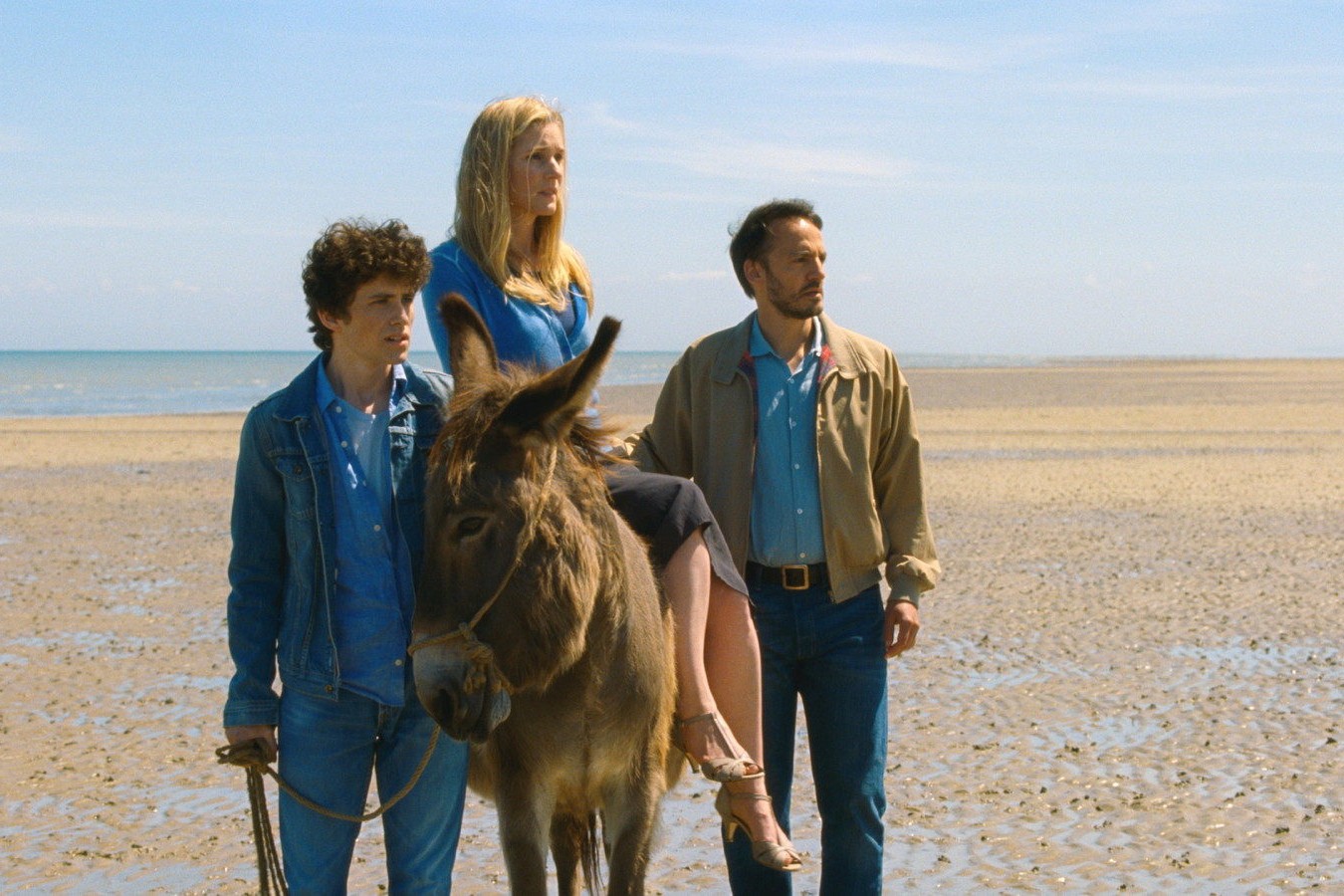It is always exciting when a filmmaker comes out of nowhere with a fully formed and distinctively new way of seeing the world. It adds intrigue, and a certain amount of wonder, when that filmmaker is in his 60s. Actually, Eugène Green was a youthful 50-something when he made his first feature in 2001, but it’s his two most recent pictures that have garnered international exposure: La Sapienza, a 2014 look at a married couple against a backdrop of architectural history, and his latest, The Son of Joseph. Green’s style is formal, almost stilted: Characters pose in front of luscious European settings, reciting their lines with sincerity but little melodrama; when the conversation becomes especially intimate, the people speak directly at the camera. Most movies use naturalism as a way of getting to something real. Green goes the opposite direction, with the same goal.
The Son of Joseph begins with a ball of teenage hostility named Vincent (Victor Ezenfis). He is frustrated at not knowing the identity of his biological father, but his mother Marie (Natacha Régnier), a kind nurse, refuses to reveal it to him. Some snooping leads Vincent to the undeniable truth that his father is a pompous publisher (the great Mathieu Amalric, in full self-absorbed glory). This leads to a couple of quietly amusing scenes: a book party where Vincent hobnobs with some pretentious literary types (Pulp Fiction co-star Maria de Medeiros is especially good as a trendy critic), and one that has Vincent breaking into his father’s office and hiding under a couch.
This is not a “French comedy,” however. As the title implies, there is a Biblical, or at least spiritual, angle to Green’s story, which comes more into view when the publisher’s brother enters the scenario. He is Joseph (Fabrizio Rongione, the husband in Two Days, One Night), as modest as his brother is flashy—Joseph seeks to escape the city and raise cows in the countryside. His chance encounter with Vincent leads to a friendship; Joseph had his own troubled youth, and expresses a near-complete empathy for the sullen teenager. The names Joseph and Marie conjure up the possibility of a nativity theme—it should come as no surprise when a donkey enters the movie—but Vincent himself is concerned with the Bible story of Abraham and Isaac and the question of why a father might destroy a son.
None of this feels pretentious or allegorical, certainly not after you’ve gotten into Green’s curious style. His work is so precise it might feel mathematical, but the effect is anything but, especially when open-faced actors like Rongione and Régnier are staring soulfully into the camera. Perhaps the plain, squared-off approach allows us to concentrate on the characters’ trajectory, because the last couple of scenes are very moving in a way I wouldn’t have predicted at the beginning. This includes the late arrival of the donkey—provided by a passing Good Samaritan, who may be slightly confused about the journey of our main characters but happily helps them on their way, departing with a single mysterious but forceful word: “Resist.”
As he did in La Sapienza, Green himself appears briefly, here as a frizzy-haired concierge doling out twinkly life advice, such as the credo that nobody who is punctual ever achieved anything. Now 69, Green was born in New York but has had French citizenship for decades—the accent mark in his first name is a rebuke to his American nativity—and is apparently an expert in centuries-old French theatrical traditions, some of which he employs in his films. There are lots of ways for movies to operate, but too many follow the same blueprint of realistic behavior and unobtrusive, invisible style. The Son of Joseph is a wonderful answer to that same-old same-old, a blessedly welcome upending of expectations. The Son of Joseph. Not Rated. Opens Fri. Feb. 17 at Northwest Film Forum.
film@seattleweekly.com






